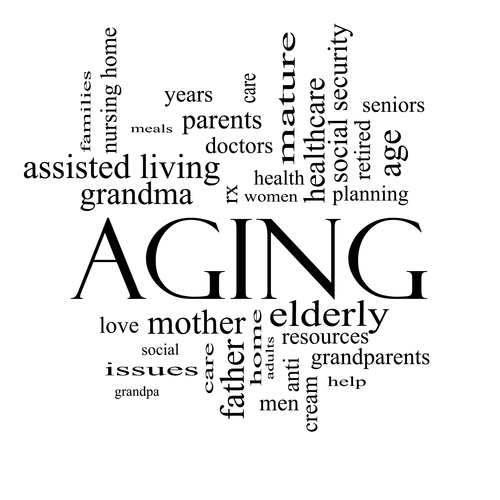
We t alk about probate a lot, and just like everything else, it can be a little too much to deal with. So, what if you don’t want to deal with any of that? Is there a way for you to avoid it altogether?
alk about probate a lot, and just like everything else, it can be a little too much to deal with. So, what if you don’t want to deal with any of that? Is there a way for you to avoid it altogether?
In fact, there is!
Let’s start with Revocable Living Trusts:
Living trusts were created to give people a way around the probate process. One particular advantage to having any valuable property in a trust is the fact that it is not considered to be part of the probate estate. Keep in mind, though, that this is counted as part of the estate for federal tax purposes.) This is because someone called the trustee, and not you as an individual, owns any property left in the trust. After you pass away, the trustee can both easily and quickly pass the property in the trust to whomever you left it to—and avoid the probate process. You can also specify in the trust document who you want to inherit the property, like family or friends (just as you can in a will).
- Pay-On-Death Accounts and Registrations
One interesting thing you are able to do with any bank accounts or retirement accounts you have is that you can convert them into Pay-On-Death accounts. All you need to do is fill out an easy form and then list somebody to be the beneficiary. At the time of death, any money in these accounts will go directly to the listed beneficiary (and avoid the probate process). You can also do the same thing with security registrations, and even vehicle registrations (though only in some states). Some states also allow for P.O.D. real estate deeds that use a deed that doesn’t come into effect until your death.
So, here are just a couple of ways to avoid the probate process, but let’s look at a few more:
You can avoid probate simply by jointly owning property or by giving gifts. Let’s go into a bit more detail on each of those things below.
- Joint Ownership of Property
This method gives you a quick and easy way to completely bypass the entire probate process whenever the first owner passes away. There are, in fact, several ways that this can be accomplished. To take title along with someone else and avoid probate, all you have to do is state on the ownership papers (like a real estate deed, for instance), how you want to hold the title. Normally, no other documents are needed, and when one of the owners passes away, the property then transfers over to the joint owner, without ever having to worry about probate. Let’s see some other ways to avoid probate below:
- Joint tenancy with the right of survivorship
Any property owned in joint tenancy will pass automatically to the surviving owner when one of them dies.
- Tenancy by the entirety
In some states, married couples may often take a title not in joint tenancy, but in what is known as “tenancy by the entirety.” It is similar to joint tenancy, but only married couples may use it. Even same-sex partners may do it in some states, so long as they have registered with the state. Both ways avoid probate in exactly the same way.
- Community Property with right of survivorship
People in the following states: Alaska, Arizona, California, Idaho, Nevada, Texas or Wisconsin may be able to claim community property with right of survivorship if they are married and co-own property with their spouse. In this way, if one spouses passes, the other automatically owns any assets upon death. In California, those with a same-sex partner may also doo this as long as a domestic partnership has been registered with the state.
To finish our simple guide on how to avoid probate, let’s check out a couple of different ways to avoid probate if you have a small estate.
The truth of the matter is that if your estate is small enough, you may not even have to worry about probate at all. Almost every state now offers something in the way of shortcuts, or even ways around probate altogether in some cases, for small estates. Although, be aware that each state defines that term differently, so check out the rules and regulations for your state.
Two basic shortcuts for small estates are:
- Claiming Property with Affidavits
If the total amount of value for everything is below a certain number, anyone who gets your personal property (that is, anything except for real estate) could potentially skip probate altogether. The exact amount can and does vary from state to state, though, and it can vary by quite a good amount.
If an estate qualifies, any inheritor may draw up a short document that states he or she is entitled by will or state law to a certain item of property. This document (the affidavit) is signed under oath. Then, whenever the institution or person holding the property (such as a bank where the deceased had an account) gets the required documents (the affidavit and a signed copy of the death certificate), it can then give out any monies or other property.
- Simplified Court Procedures
These are defined according to individual state laws and are a quicker, easier version of the probate process. Probate Court will still be involved, but it has much less control over settling an estate. In many states, these processes are even simple enough to handle without needing a lawyer. Because of this, they often save a lot of money and time.
If you or someone you love needs assistance with Elder Care law issues, call 856-281-3131. Let us help ease your stress and give you a plan.
The post Avoiding Probate: A How-To Guide appeared first on Scott Counsel.
source
http://www.scottcounsel.com/avoiding-probate-a-how-to-guide/

 you at least have a basic of idea of what a trust in general is—something you set up in order to provide for those you love when you no longer are able to, or to keep your assets safe, right? An irrevocable trust is just as easy to understand.
you at least have a basic of idea of what a trust in general is—something you set up in order to provide for those you love when you no longer are able to, or to keep your assets safe, right? An irrevocable trust is just as easy to understand.
 alk about probate a lot, and just like everything else, it can be a little too much to deal with. So, what if you don’t want to deal with any of that? Is there a way for you to avoid it altogether?
alk about probate a lot, and just like everything else, it can be a little too much to deal with. So, what if you don’t want to deal with any of that? Is there a way for you to avoid it altogether?
 Dying is a part of life that can be tough on everyone involved—both individually and as a family unit. And while that might seem like the toughest part of losing a loved one, sometimes what comes after can be just as tiring and overwhelming, if not more so. So, if it’s up to you to take care of your loved one’s affairs, the tips in this article are for you. Let’s get started.
Dying is a part of life that can be tough on everyone involved—both individually and as a family unit. And while that might seem like the toughest part of losing a loved one, sometimes what comes after can be just as tiring and overwhelming, if not more so. So, if it’s up to you to take care of your loved one’s affairs, the tips in this article are for you. Let’s get started. burned out in the process. After all, if we are rundown or sick ourselves, we can’t provide the best care possible to those who may be counting on us.
burned out in the process. After all, if we are rundown or sick ourselves, we can’t provide the best care possible to those who may be counting on us. You might be reading this and wondering when would be the right time to speak with an elder law attorney, or perhaps if you even need to speak with someone to begin with. The truth is that if you are put in a position to be in charge of a loved one’s property or other things, it may be a good idea to consider speaking with an elder law attorney before either you, your spouse, or parents make any large transfers of property. Some times that you might consider getting advice from an elder law professional include:
You might be reading this and wondering when would be the right time to speak with an elder law attorney, or perhaps if you even need to speak with someone to begin with. The truth is that if you are put in a position to be in charge of a loved one’s property or other things, it may be a good idea to consider speaking with an elder law attorney before either you, your spouse, or parents make any large transfers of property. Some times that you might consider getting advice from an elder law professional include: Getting older is a challenge in and of itself, let alone having to think about possibilities like nursing homes or long-term care centers. Add everything together and it can be overwhelming what you have to remember and make note of. It’s possible you could be wondering just exactly what rights you have in a nursing home that’s been certified by Medicaid or Medicare, and remember that you do have rights and protections under both federal and state laws. These laws work together to ensure you get the care and services you need, and there are numerous rights and protections. However, our focus now is on to protect a resident’s funds.
Getting older is a challenge in and of itself, let alone having to think about possibilities like nursing homes or long-term care centers. Add everything together and it can be overwhelming what you have to remember and make note of. It’s possible you could be wondering just exactly what rights you have in a nursing home that’s been certified by Medicaid or Medicare, and remember that you do have rights and protections under both federal and state laws. These laws work together to ensure you get the care and services you need, and there are numerous rights and protections. However, our focus now is on to protect a resident’s funds. We’ve talked a lot about probate in previous articles, but you may still be foggy on how the probate process deals with things like social security, pensions, or even Veteran Affairs. We want to get you the answers you need, so let’s get started!
We’ve talked a lot about probate in previous articles, but you may still be foggy on how the probate process deals with things like social security, pensions, or even Veteran Affairs. We want to get you the answers you need, so let’s get started! n fact, they are not the same things; there are some key differences between the two, so let’s take a look at them now:
n fact, they are not the same things; there are some key differences between the two, so let’s take a look at them now: Oftentimes when we think of social workers, images of those who work to get children out of unsafe or less than ideal conditions may pop into our heads. But it isn’t only children that social workers assist. No, in fact, there are social workers who specialize in the field of the elderly population as well.
Oftentimes when we think of social workers, images of those who work to get children out of unsafe or less than ideal conditions may pop into our heads. But it isn’t only children that social workers assist. No, in fact, there are social workers who specialize in the field of the elderly population as well. The period of time right before and right after someone passes away is one of the most chaotic times someone might personally experience. Making matters worse is the fact that no one’s business is ever in perfect order. Add to that the fact that those left behind often have to handle the fallout without having all the necessary information and it becomes a perfect storm of unfortunately normal and never easy.
The period of time right before and right after someone passes away is one of the most chaotic times someone might personally experience. Making matters worse is the fact that no one’s business is ever in perfect order. Add to that the fact that those left behind often have to handle the fallout without having all the necessary information and it becomes a perfect storm of unfortunately normal and never easy. In most all cases, Medicare Part B DOES NOT cover any type of adult day care. It will, however, cover some of the services the adult day care provides, though normally in limited circumstances. Medicare Part B covers mental health treatments that have been prescribed by a physician and provided by an outpatient mental health facility. If that place also happens to be an adult day care center, the patient will have the added benefit of those types of services while also receiving mental health treatments. You should be aware that Medicare will only cover care if said care involves actual medical treatment—like administration and monitoring of medication, treatment to recover from a medical crisis, or either individual or group psychotherapy.
In most all cases, Medicare Part B DOES NOT cover any type of adult day care. It will, however, cover some of the services the adult day care provides, though normally in limited circumstances. Medicare Part B covers mental health treatments that have been prescribed by a physician and provided by an outpatient mental health facility. If that place also happens to be an adult day care center, the patient will have the added benefit of those types of services while also receiving mental health treatments. You should be aware that Medicare will only cover care if said care involves actual medical treatment—like administration and monitoring of medication, treatment to recover from a medical crisis, or either individual or group psychotherapy. that someone lives in his or her own residence as long as possible as they get older. Specifically, it means that an elder is at a time in life when he or she can have the things they need in life while still keeping the same quality of daily life. That distinction is vital, since many seniors might be mistaken thinking that aging in place will fix things that cannot be fixed simply by staying home.
that someone lives in his or her own residence as long as possible as they get older. Specifically, it means that an elder is at a time in life when he or she can have the things they need in life while still keeping the same quality of daily life. That distinction is vital, since many seniors might be mistaken thinking that aging in place will fix things that cannot be fixed simply by staying home. Many people all over the country take advantage of the benefits that Medicaid provides for them. However, those same people may not even fully understand all of the benefits they are receiving or can receive, exactly what Medicaid covers, or they may lack a general understanding of Medicaid overall.
Many people all over the country take advantage of the benefits that Medicaid provides for them. However, those same people may not even fully understand all of the benefits they are receiving or can receive, exactly what Medicaid covers, or they may lack a general understanding of Medicaid overall. temporarily absent from the facility.
temporarily absent from the facility. A Continuing Care Retirement Community is a type of retirement community in the U.S. where a variety of care needs can be met within the community—from independent living, assisted living, or even skilled nursing care. While there are many benefits to living in such a community, one of the downsides is the rather great financial cost. An individual could expect to pay anywhere in the range of $20,000 up to $500,000 just in entrance fees—though the exact figure depends on whether you actually purchase the unit.
A Continuing Care Retirement Community is a type of retirement community in the U.S. where a variety of care needs can be met within the community—from independent living, assisted living, or even skilled nursing care. While there are many benefits to living in such a community, one of the downsides is the rather great financial cost. An individual could expect to pay anywhere in the range of $20,000 up to $500,000 just in entrance fees—though the exact figure depends on whether you actually purchase the unit. We all would like to think that Medicaid will be there for us without question if we happen to need it later on in life. However, there is something called a Medicaid Look Back period that can potentially affect your eligibility to receive Medicaid benefits.
We all would like to think that Medicaid will be there for us without question if we happen to need it later on in life. However, there is something called a Medicaid Look Back period that can potentially affect your eligibility to receive Medicaid benefits. When trying to plan out the care of an elderly loved one, numerous things can come up that need to be taken into consideration. For now, let’s look at some of the questions you should ask, and some of the differences between home care and care at assisted living facilities and nursing homes.
When trying to plan out the care of an elderly loved one, numerous things can come up that need to be taken into consideration. For now, let’s look at some of the questions you should ask, and some of the differences between home care and care at assisted living facilities and nursing homes.